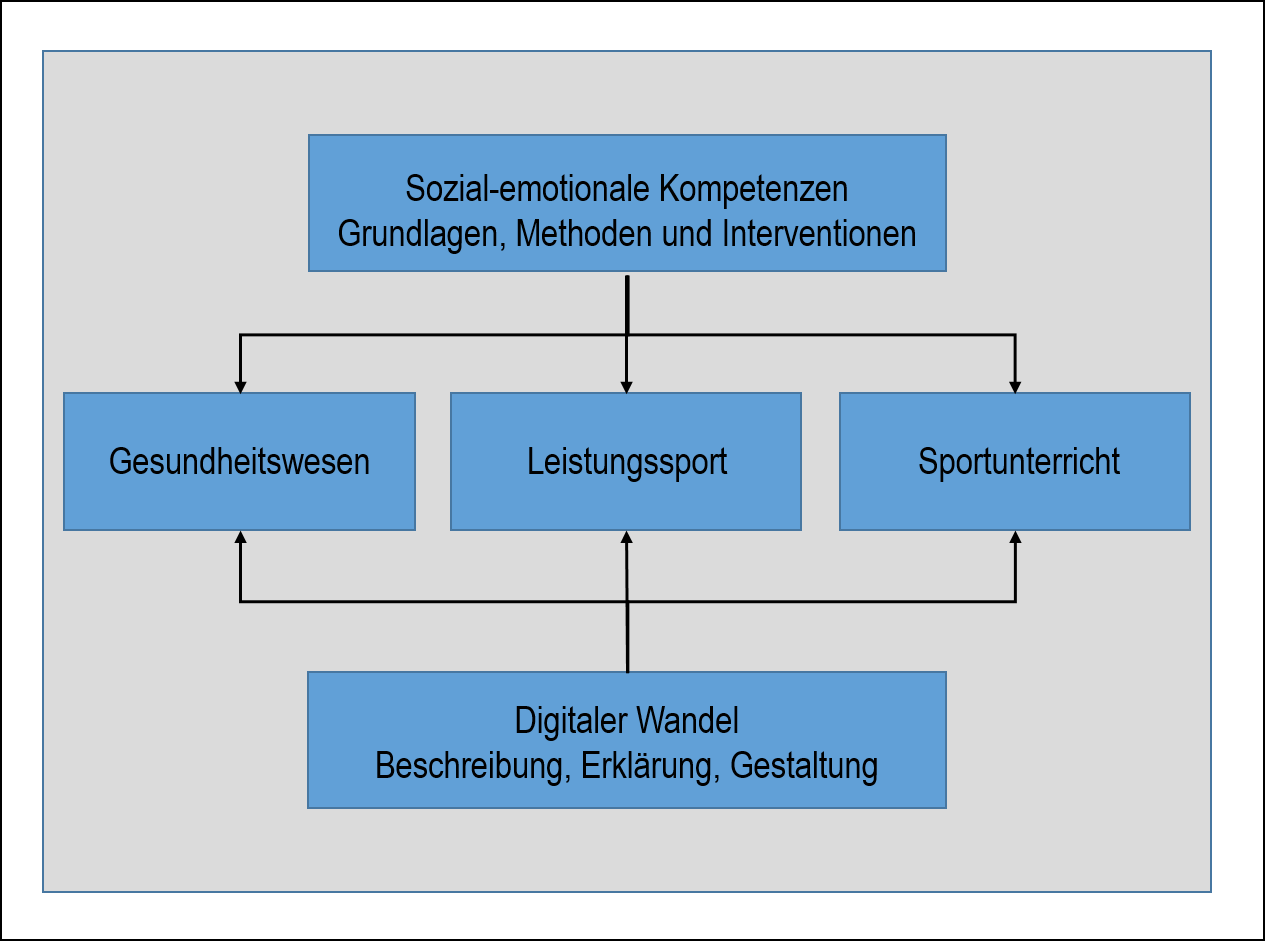Health Education and Sports Psychology
In times of digital change, not only do new technological possibilities arise that allow for the development of innovative solutions, but also social and psychological challenges for the people involved. The focus of our research area is on emotional processes and the digital change (see figure).
Emotional processes
Emotions are considered to be a fundamental part of human beings and have a significant influence on motivation. Neuroscientific research suggests that the separation of feeling and mind is only an illusion. All decisions humans make significantly involve those parts of the brain that process emotions. Emotions, therefore, are part of a system which helps a person assess a situation and act accordingly. Irrespective of whether this is consciously perceived or not, emotions permanently influence human decisions. At the same time, emotions facilitate or complicate the communication with other people. In recent years, great advances in information technology have been made regarding the study of emotions, making it possible to investigate the role of emotions in the context of sport and health care.
Digital change
The rapid pace of technological development is opening up new possibilities, both for the field of research as well as its application. New digital applications are constantly changing our lives, both at work as well as in our leisure time. They offer innovative and individualized solutions that would have been unthinkable just a few years ago. As a result, supply gaps can be closed effectively and cost-efficiently. New types of services are emerging which not only present new challenges for both users as well as service providers, but also require adjustments. However, little is known about how these changes affect social interactions, emotional experience, motivation or human behaviour. This interdisciplinary field of research concentrates on describing and developing concepts of a productive design of digital change.


